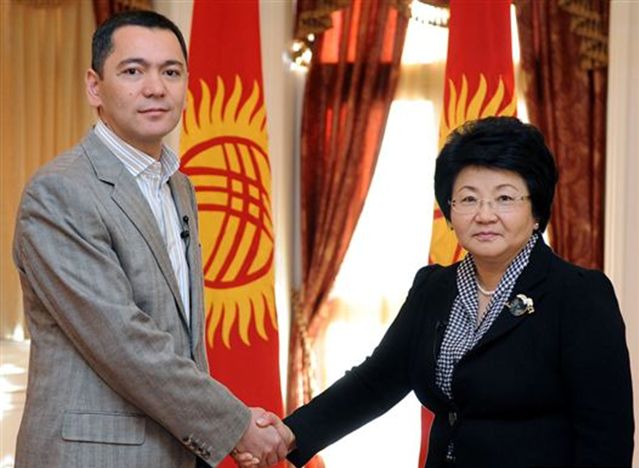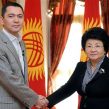
Kyrgyz Parliament Forms New Coalition
Publication: Eurasia Daily Monitor Volume: 7 Issue: 225
By:

After the first unsuccessful attempt to form a ruling coalition, Kyrgyz Members of Parliament (MP’s) have attempted to re-establish one. Under the Respublika Party’s leadership, the Social-Democratic Party of Kyrgyzstan (SDPK) and the Ata-Jurt Party joined a new coalition. Similar to the earlier effort, the current coalition was formed based on the parties’ mutual agreement over key government posts (www.akipress.kg, December 15). Meanwhile, their political platforms played only a minor role in the negotiation process.
The current coalition numbers 77 MP’s, significantly more compared to the first coalition consisting of the Respublika, SPDK and Ata-Meken parties. Even if some of the coalition members decide to vote against the coalition’s agreed candidates, parliament would still be able to move forward with forming a government.
According to the latest agreement, the SDPK leader, Almazbek Atambayev, will seek the post of prime minister. Ata-Jurt MP, Akhmatbek Keldibekov, will aim to secure the post of parliamentary speaker and Respublika’s leader, Omurbek Babanov, will compete for the deputy prime minister’s position (www.24.kg, December 16).
The major difference between the first coalition and the current one is that it unites representatives of the so-called “northern” and “southern” parties. SDPK is mostly popular in northern Kyrgyzstan; while Ata-Jurt’s strongest support base is concentrated among ethnic-Kyrgyz voters from the south. According to an informal agreement between the parties, if the prime minister is a representative of the north, the parliamentary speaker has to come from southern Kyrgyzstan (EDM, December 14).
Babanov has been leaning towards controlling the economic sector. Being a successful entrepreneur Babanov was able to form and promote his party in only three months preceding the elections. Babanov had adopted a business-like approach to the party’s internal cohesion and built a reputation as an efficient manager. The first coalition collapsed only one day after its formation, when the Ata-Meken leader, Omurbek Tekebayev, was unable to secure enough votes for his bid to become parliamentary speaker (www.24.kg, December 3).
Allegedly, Ata-Jurt had pressured Respublika to block Ata-Meken from the post. Left out of the coalition, the Ar-Namys and Ata-Meken parties will be unlikely to form a minority block. Reportedly, Ar-Namys did not join the ruling coalition because the party was unable to negotiate over the post of either prime minister or parliamentary speaker (www.akipress.kg, December 14). Both parties, however, will represent a strong independent opposition if they either consolidate or act separately. Apart for Ar-Namys, the most ardent supporter of Russia, the current coalition unites parties with strong pro-Russian views.
Earlier, Ata-Jurt favored changing the constitution from a parliamentary system. These calls for such changes are likely to be toned down, as the party’s key leaders are able to gain key government posts. The protracted coalition formation process was detrimental to the government’s functioning. Virtually all ministries, including interior and defense ministries, lack personnel. The Ministry of Youth and Education, for instance, exists only nominally.
Many in Kyrgyzstan link a stable coalition with promoting stability throughout the country. Most observers, however, doubt that the current coalition will survive in the long term. Even once the key government posts are filled, internal splits within the ruling coalition will remain a significant risk. Should the current coalition collapse, parliament will have only one more opportunity to agree on a coalition before the president has the right to call for early parliamentary elections. Fresh elections would further weaken the state structure and challenge the country’s newly-introduced parliamentary system of governance.
Meanwhile, numerous questions related to domestic security remain answered. Among the most urgent are the court proceedings connected to the ethnic violence in southern Kyrgyzstan in June, and the recent bombings in Bishkek and Osh. Kyrgyzstan’s courts have convicted only ethnic Uzbek over crimes related to the June violence, further fueling fear of persecution and discontent among the Uzbek population. The Kyrgyz government has yet to provide convincing explanations about who were behind the explosions.
In forming a coalition and competing for government posts, all five parties represented in the parliament are preparing for the presidential elections to be held in late 2011. Although the new coalition reveals winners and losers, the process of inter-party negotiations has confirmed each political party’s real intentions. In order to prepare for the elections next year, all parties must move beyond merely trading government posts.




